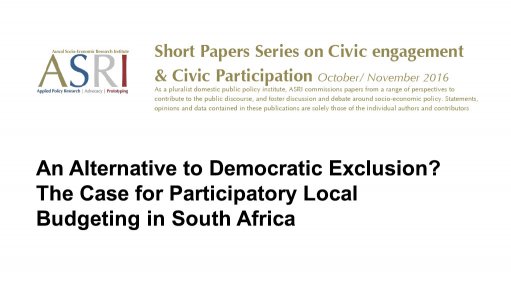
This article makes a case for transforming local governance to embrace inclusion and accountability through participatory local budgeting. South Africa’s history of experiments with participatory local governance and policy-making, which was incorporated to some extent in post-apartheid institutions of local government, implied some intention for such practices to continue.
However, despite the possibility that such an approach could advance democratic accountability and result in policies that favour the needs of the poor, the African National Congress (ANC) government has pursued a centralised, technocratic approach. Needing to regroup after electoral losses in the 2016 municipal elections, will the ANC embrace participatory local budgeting, and in doing so, transform its mode of governance?
Will non-ANC and the coalition governments embrace a new approach that is more responsive to local needs and demands and potentially leads to more effective governance? This article concludes by outlining concrete steps that could be taken at the national and local levels to advance participatory local governance.
Paper by Carolyn Bassett, Associate Professor, Department of Political Science and Director, International Development Studies Program at the University of New Brunswick in Fredericton, Canada